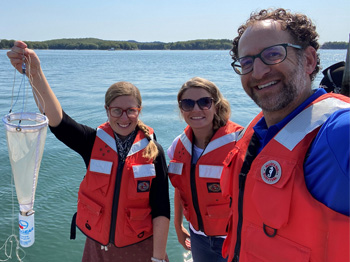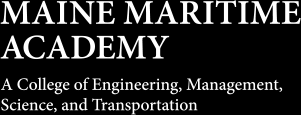ON A BRISK SEPTEMBER MORNING the newly planted grasses are still wet on Leavitt Lawn as students assemble for muster in the Logan Oakley Field House. There’s one figure who’s been up and hammering away at his computer since before dawn and is now making his rounds, shaking hands with cadets as they take formation. Maine Maritime Academy’s 15th President Jerry S. Paul (“JP” to all who know him) has just begun his first academic year in the top post at the Academy. To be found among the students and supporting them is not a rarity for JP. If asked, it would likely be one of the first goals of his day and it doesn’t go unnoticed. “He is highly respected among the campus as someone we know to be incredibly candid and authentic. He loves to hear from the students about what is going on in their lives,” said Natalie Samuels, Regimental Commander, Marine Transportation Operations, class of ’23..
While the incoming freshmen are new to MMA, JP is not. A 1989 alumnus, he arrived in April 2022 to assume his new role. Between selection and investiture, he spent months meeting with everyone from students to alumni to staff—nearly 400 meetings in all. His goal? A listening campaign that would give him a quick start on his newest challenge. His approach drew praise from Bobby Vagt, former president of Davidson University in North Carolina. “One of the things that impressed me right off the bat, having been in his shoes, is that he got two things right from the beginning. He expressed absolute positivity about the institution’s future, and he had no pretense that he had all the answers.” Vagt and his wife, Ruth Anne, are Castine residents and were some of the first to welcome the Pauls to town.
Marrying in 1988, JP and Kristy spent their first year as newlyweds in Castine while he finished his fourth year at MMA. In the time spanning their departure from MMA and return more than three decades later, Paul has had posts all over the world in both the public and private sectors. One thing has remained consistent—his work in the maritime and energy fields.
...Read More-
 Dr. Barclay ShepardA lifetime of service to Naval medicine
Dr. Barclay ShepardA lifetime of service to Naval medicine
...Read More -
 High-Tech Equipment Aids Ocean ResearchStudents trained in new tools to better monitor changing environment
High-Tech Equipment Aids Ocean ResearchStudents trained in new tools to better monitor changing environment
...Read More
